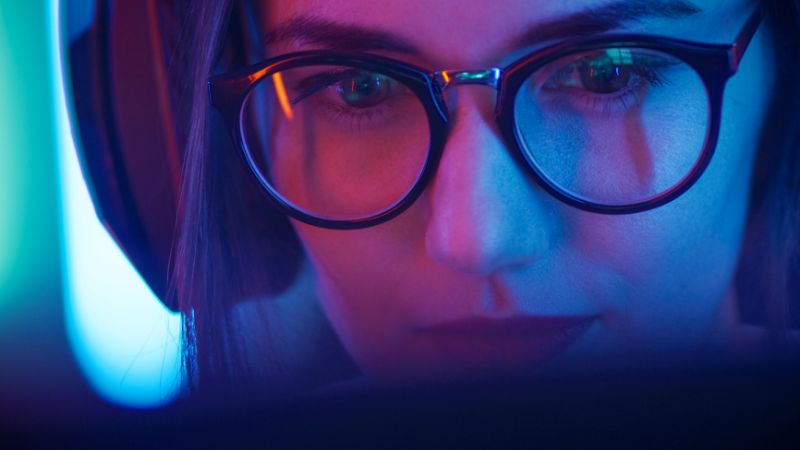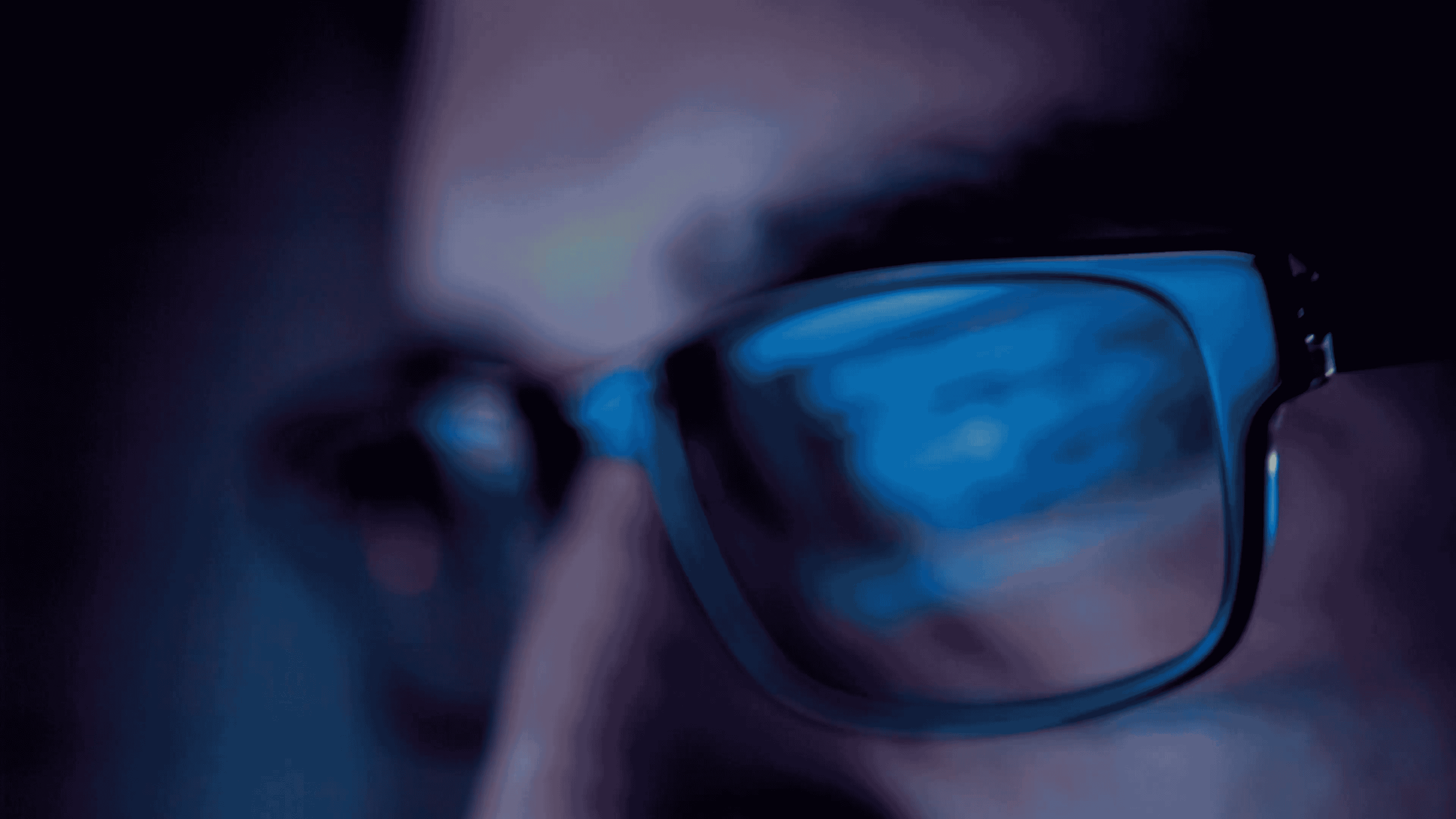Do you often find yourself scrolling your Instagram feed on your smartphone, watching Netflix on your Smart TV, or using your computer to get work done? According to a Nielsen study, American adults spend an average of 10 hours and 39 minutes staring at digital devices.
As a result, they are constantly exposed to blue light. While plenty of people understand the dangers of UV exposure, many still don’t realize how important it is to protect their eyes from the constant barrage of blue light.
IMAGE: PIXABAY
What Exactly Is Blue Light?
Sunlight contains light rays that are red, orange, yellow, green, blue, and all shades in between. When combined, this spectrum of visible light rays constitutes what we know as white light. Blue light is a small subsection of white light that is also known as high energy visible light, or HEV.
Unlike white or red light, blue light is low wavelength light that can damage your eyes over time because it cannot be blocked by the cornea or lens of the eye, so the sensitive photoreceptors in your eyes get directly exposed to it.
Blue light has the potential to lead to macular degeneration, which typically affects people over the age of 60. This is starting to happen to people sooner though due to the increased use of devices that emit blue light. Overexposure to blue light can also lead to dry eyes.
Angela Bevels, OD, founder and owner of Elite Dry Eye Spa in Tucson, Arizona, said, “Studies have found that with the increased usage of smartphones, iPads, and laptops, there has been an increase in the development of dry eyes due to a decreased blink rate.”
Digital devices have become an integral part of our lifestyles, so it’s unrealistic to avoid them altogether. Fortunately, there are preventative measures you can take to minimize the amount of blue light that your eyes are exposed to and prevent vision problems.
1. Supplement With Antioxidants
Your mom probably told you carrots are good for your eyes. Well, mom was right. Carrots are high in antioxidants that are essential to good vision. Lutein and zeaxanthin are two carotenoid pigments that give many foods, including carrots, their yellow and orange color.
Cantaloupe, corn, orange and yellow peppers, salmon, and eggs contain these antioxidants. They are also found at high levels in leafy greens like parsley, spinach, and kale. Lutein and zeaxanthin are found in a thin layer of yellow tissue in the human retina. Supplementing with these powerful antioxidants or eating more colorful fruits and vegetables can improve your visual acuity and prevent blue light damage.
People with eye problems like to buy hyaluronic acid supplement here that help them maintain moisture levels and support overall eye health. These supplements often aid in reducing dryness and discomfort, especially for those with sensitive eyes.
2. Supplement With Collagen
Help your eyes stay young with collagen, the glue that holds your body together. The word collagen is actually derived from the Greek word, “kolla,” which means glue. This fibrous protein is found throughout your body, including your eyes.
By the time you reach the age of 35, your body’s natural collagen production slows down. By the time you are 40, the collagen starts to deplete faster than your body can produce it. There are other factors besides aging that affect collagen production, including smoking, UV light exposure, and pollution.
Some studies have also shown that blue light can break down collagen. Declining collagen levels in the body are associated with eye conditions like cataracts and glaucoma. Your eyes are made up of fibrous and gelatinous tissues that can be strengthened with collagen supplementation.
You can prevent declining eyesight and eye disease by adding liquid collagen supplement to your diet. Collagen supplements enhance not only your eye health but also your overall body health. You’ll notice that your skin is softer, smoother, and more youthful.
3. Wear Glasses That Block Blue Light
Computer glasses are special purpose glasses with yellow-tinted lenses that reduce blue light exposure from computers and other digital screens. If you don’t need to vision correction, you can get these glasses without a prescription.
You could also get a special prescription for computer glasses that are optimized for the distance from which you view your devices. This helps your eyes relax and reduces eye strain. Better yet, add an anti-reflective coating to your computer glasses. This introduces an additional layer of protection and comfort because it shields your eyes from blue light reflections on both sides of your lenses.
Another option is to add blue light filters to your smartphone, tablet, and computer screens. These filters prevent blue light from reaching your eyes without affecting your display. Some tech companies have even introduced a night setting to their devices to decrease the amount of blue light emitted.
Taking these simple steps can help to counteract the negative effects of blue light, so you can continue to enjoy the tech devices you love while keeping your precious eyes intact. Don’t let hindsight be 20/20!
Disclaimer: The above references an opinion of the author and is for information purposes only. This article is not intended for people living in countries where the usage of the substance mentioned in this post is illegal. Respect the law in your country and/or state. Always seek advice from a qualified professional in the relevant field.
If you are interested in even more lifestyle-related articles and information from us here at Bit Rebels, then we have a lot to choose from.


COMMENTS